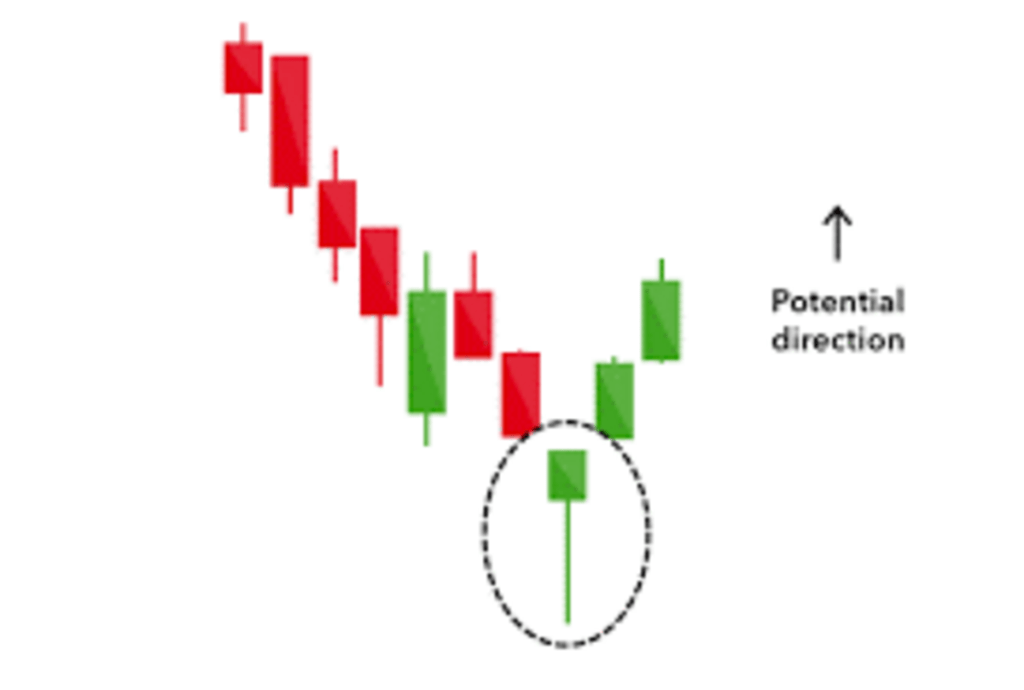Many years ago, one of the greatest traders that ever-lived Muneshisa Homma invented the Candlestick trading bible. As a student of the candlestick, Homma’s book “The Candlestick Trading Bible” provided a good background and insight to many traders and inspired them to develop candlestick trading strategy, which when used with other technical analysis tools can help them make better and informed trading decision.
Learn the Secret of Forex Trading, Click here to download a free e-book now
Candlesticks in a great sense are flexible; as a virtual representation of what is going on in the market, they can be used to accurately predict the trend of the market. For me, the bottom line is, if you can understand how to interpret market structure, understand candlesticks pattern, know how to draw trendline and can accurately spot support and resistance you will be a good and successful trader.
To be a successful trader is hard but not impossible, our goals as your guidance is simple, if you are trading Boom and Crash that is offered by Deriv for instance, take your time to study price action (especially: market structure, support and demand, trendlines) and candlestick pattern, this will give you a clear overview of what to expect from the Boom and Crash market and give you a high probability of being a successful Boom and Crash Trader. Don’t start with a real account, start with a demo account and learn even if it takes you 3 months to master the whole process before opening your real account
Don’t be left out, Open a free trading account now by clicking here
Table of Contents
The Only Candlestick Trading Strategy You Need to Know
If you have not heard of the engulfing bar strategy, the inside bar strategy and the inside bar false breakout strategy, I suggest you look for the Candlestick Trading Bible and study; as it will give you the foundation you need to succeed in the market. The Candlestick trading strategy I am going to share in this article is very simple and easy to understand, but they are other candlestick patterns that will be very useful in your trading journey, however, this is the one that has worked for me for many years.
What is a Candlestick?
A candlestick is a price chart that shows the open, close, high, low of a security for a particular period. It is an important tool of technical analysis since it is a good predictor of price movement. It demonstrate information on a security’s price movement.
A candlestick has three important aspects that every trader should know: the body, wick, and color. The color shows the market trend. A red candlestick shows that the security closed at a price below which it opened and had previously closed, while the opposite is true for a green candle.
Candlestick Trading Strategy
They are many Candlestick pattern strategy, but if you don’t understand anyone, try and understand the one I am going to share in this article. The Strategy is called the 38.2 candlestick and It is based used in combination with the Fibonacci retracement tool. (Please note, If you don’t know how to use the Fibonacci retracement tool, just drop a message below this article or send me an email and I will be glad to share with you materials that will give you a deeper understanding of the Fibonacci retracement tool.
The 38.2 candlestick
The 38.2 candlestick is an important candlestick pattern. It is referred to as the 38.2 candlestick because 38.2% of its body falls either below or above the 38.3% level of the Fibonacci retracement tool.
There are four key components of any strategy
- Conditions: Certain market conditions must be met for you to enter a trade
- Your Entry Position: The position you enter your trade is very important, as it add to the probability of your win ratio
- Stop Loss: In case the trade goes wrong, the trade should terminate when it reaches this point. It’s important to ensure that you incorporate stop loss into your strategy.
- Target: How long are you going to stay in a trade is important, you need to decide the number of pips per trade, this will determine your profit to loss ratio and it’s a very good component of risk and money management
A trading strategy is very important. Trading without a strategy will have you having inconsistent wins. However, when you are consistent in how you trade, your wins become more consistent, and you can study from past trades.
How to Set Up the 38.2% Trading Strategy (proven 74% win rate)
- Add 20 exponential moving average (EMA) to your main chart
- For a bullish market, make sure the market is trending above the 20 EMA
- Wait for a 38.2 candlestick to wick off the 20 EMA, i.e., wait for the candlestick to cross over the 20 EMA, and then the price gets pulled back by the bulls.
- The entry position is the close of the 38.2 candlestick that wicked off the 20 EMA
- Place the stop loss at 20 pips below the entry position
- Set the target to 1:1 ratio, therefore take profit at 20 pips above the entry position
The reasoning behind the strategy
The 20 EMA tends to act as a support, therefore, acts as an important place of value. The buying pressure indicated by the 38.2 bullish candle coupled with the support level makes up the conditions necessary to confirm a position in a bullish market; when the 38.2 candlestick wicks off the 20 EMA, it indicates that there is a lot of buying pressure indicating that the upward trend is likely to continue.
Final Thoughts
I used the 38.2 strategy mainly to get some buys positions and the outcome has been amazing. I recommend an account size of at least $50 and a tight risk management strategy. Once all conditions are met, the probability of win is over 74%, you can also break even once the bullish moves start.
Disclaimer
Deriv offers complex derivatives, such as options and contracts for difference (“CFDs”). These products may not be suitable for all clients, and trading them puts you at risk. Please make sure that you understand the following risks before trading Deriv products: a) you may lose some or all of the money you invest in the trade, b) if your trade involves currency conversion, exchange rates will affect your profit and loss. You should never trade with borrowed money or with money that you cannot afford to lose.

